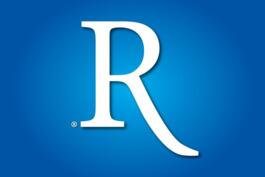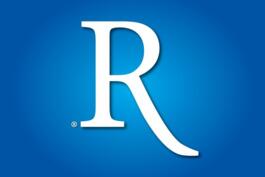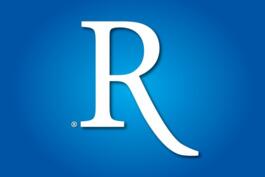Mr. Obama: Taxing the Rich Won't Increase Revenues
A Commentary by Michael Barone
Did Barack Obama take Tax 1 in law school? I did, and I remember the first day of classes, when mild mannered Professor Boris Bittker asked a simple question, "What is income?"
I was pretty confident I could come up with a quick answer, and so were a lot of other students. By the end of the hour, after Professor Bittker had politely punched huge holes in every student's definition, it was pretty clear that none of us could. Income is a slippery concept -- especially slippery when you're trying to tax it.
Which leads me to think that Obama may have avoided Tax 1. Or perhaps he dozed off in class. For in his April 13 speech at George Washington University, the speech to which Standard & Poor's responded by reducing the government's credit rating to "negative," he seemed to think he could get all the money we need to balance the budget from higher taxes on the rich.
That's wrong as a matter of simple arithmetic, as is clear from a chart reproduced on the Wall Street Journal editorial page showing the total amounts of taxable income of each group.
The chart showed that if the government had simply confiscated every dollar from those reporting more than $1 million taxable income in 2008, it would not have gotten the $1.3 trillion needed to close the current federal budget deficit.
What the chart doesn't show, however, is even more important. And that is that when you reduce income tax rates, high earners have more taxable income. When you raise them, they have less.
High earners don't sit around waiting to have their money confiscated any more than chickens sit around and let you pluck out all their feathers. They pursue other options.
This is most obvious when you think about capital gains. The federal government doesn't try to tax capital gains -- the increase in values of your stocks or your house -- every year (Professor Bittker had us in knots explaining how it might do this). You pay capital gains on a stock or house only in the year you sell it.
What happens if the capital gains tax goes up from 15 percent to 50 percent? People stop selling stocks and hold onto their houses if they possibly can. And when cap gains rates go down? They're more willing to sell, pay the lower tax and invest in something else.
That's why the government's total revenues from capital gains have tended to rise when the capital gains tax rate is lowered. And why increases in the capital gains tax rate never raises the amount of revenues static models estimate it will.
You get the same effect, to a lesser extent, when you change tax rates on ordinary income. People working for minimum wage don't have many options about how they'll be paid. High earners tend to have more options.
If you go back to the 1970s, when the top rates were 50 percent on salary income and 70 percent on investment income, you'll find that a lot of high earners were getting company cars, company payment of country club dues and big expense accounts.
The reason: They didn't have to declare those things as income and pay taxes on them. But when rates went down, there was no demand for company-paid perks any more.
You would find also, if you spent time with those 1970s high earners, that they spent a lot of time and psychic energy in finding tax shelters -- investments that thanks to the intricacies of tax law reduced the amount of taxable income.
After the Ronald Reagan tax cuts, we saw a vast increase in high earners' taxable income. One reason, I suspect, was that they spent less time seeking tax shelters and more time figuring out how to make profitable investments.
There's a reason federal tax revenues since World War II have hovered around 18 or 19 percent of gross domestic product, regardless of tax rates. The reason is that higher rates tend to result in less taxable income. You figure out why in Tax 1.
But perhaps Barack Obama understands this. In 2008, he told ABC's Charlie Gibson that he wanted to raise capital gains rates even if the government got less revenue because of "fairness." Evidently he likes taking people's money away. What he doesn't explain is why this makes anyone better off.
Michael Barone, senior political analyst for The Washington Examiner (www.washingtonexaminer.com), is a resident fellow at the American Enterprise Institute, a Fox News Channel contributor and a co-author of The Almanac of American Politics.
COPYRIGHT 2011 THE WASHINGTON EXAMINER
DISTRIBUTED BY CREATORS.COM
See Other Political Commentaries.
See Other Commentaries by Michael Barone.
Views expressed in this column are those of the author, not those of Rasmussen Reports. Comments about this content should be directed to the author or syndicate.
Rasmussen Reports is a media company specializing in the collection, publication and distribution of public opinion information.
We conduct public opinion polls on a variety of topics to inform our audience on events in the news and other topics of interest. To ensure editorial control and independence, we pay for the polls ourselves and generate revenue through the sale of subscriptions, sponsorships, and advertising. Nightly polling on politics, business and lifestyle topics provides the content to update the Rasmussen Reports web site many times each day. If it's in the news, it's in our polls. Additionally, the data drives a daily update newsletter and various media outlets across the country.
Some information, including the Rasmussen Reports daily Presidential Tracking Poll and commentaries are available for free to the general public. Subscriptions are available for $4.95 a month or 34.95 a year that provide subscribers with exclusive access to more than 20 stories per week on upcoming elections, consumer confidence, and issues that affect us all. For those who are really into the numbers, Platinum Members can review demographic crosstabs and a full history of our data.
To learn more about our methodology, click here.



